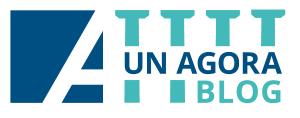This year, 2022 marks the fifteenth anniversary of the International Day of Democracy. In 2007 The General Assembly adopted a resolution[1] to observe the 15th of September each year for promoting and consolidating the principles of democracy worldwide.
The United Nations Democracy Fund (UNDEF) was created in 2005 to support and promote democracy worldwide. It was a part of initiatives for the democratization of many UN member states which started around 1990, and a series of democratization became a steady movement with many resolutions on this subject adopted by the UN General Assembly. The movement achieved its highest point at the 2005 World Summit where member states adopted the World Summit Outcome Document emphasizing democracy as one of the key areas of the UN work and endorsing the establishment of the UN Democracy Fund.
Since 2006 UNDEF has been operating in supporting nearly 1000 projects in over 130 countries. UNDEF is unique as it focuses solely on civil society organizations, mostly local, which are frontline in protecting the rights of marginalized groups and enhancing their voices through promoting their participation in decision-making processes in their communities.
Recently in April 2022, I visited Nepal, to monitor a UNDEF project in several communities in the South-East of the country. UNDEF partner, South Asia Partnership Nepal, has been implementing a project to empower the women of Musahar – an underserved community within the caste system. While their living conditions are dire, Musahar women have bright outfits with big smiles. The project started at an individual level – giving training on public speaking, negotiation, and financial literacy so that women became confident in speaking up about their concerns and bringing forth their ideas. The project then aimed at collective empowerment – forming a women’s empowerment group with the participation of women and a leadership structure in place.
Women can negotiate with government officials to obtain a national registration card, where they can receive social and welfare services, send their children to school, or receive a pension after their retirement. They were even able to send their representatives to the local councils.
A young woman said to me, “before I was afraid of speaking up as I did not know how to, and I thought no one would listen to me. After being a part of this initiative, I became confident and became a representative of the group. I was able to negotiate with the local government officials and they listened to me and some of our requests were taken care of– it was a life-changing experience”.
While I witnessed many positive changes at the grassroots level through UNDEF, I also witnessed serious backsliding of democracy in many countries in recent years. There are restraints by governments on civil society organizations’ activities through tightening the CSO registration system, posing a cumbersome project approval process, or imposing complicated restrictions on foreign currency transactions. I also witnessed that, even under such pressure, our partner CSOs are making brave efforts to overcome many obstacles with their creative, innovative, and efficient approaches to the issues at hand. UNDEF, as part of the global movement for democracy promotion, will continue to support such efforts. I feel that UNDEF has become a vital part of the global democracy initiative.
Happy International Day of Democracy to all!
[1] A/RES/62/7. Support by the United Nations system of the efforts of Governments to promote and consolidate new or restored democracies, 13 December 2007
Read the PDF version
About the author:
The author is the Deputy Executive Head, United Nations Democracy Fund at United Nations (UNDEF).



